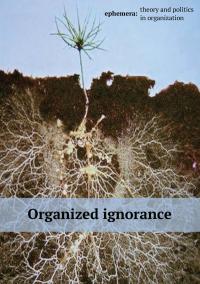Logistics of soft control: SAP, labour, organization
Event type
Outline
SAP is one of the largest developers of software that drives global economies, offering leading enterprise software solutions, specifically logistics software that makes possible movements of people, finance and things that make up global trade. SAP specialises in software development and web-based services associated with Enterprise Resource Planning (ERP) in the logistics industries among many others, including mining, health, finance, medical, insurance, oil and gas, retail and higher education. Through its widespread application in a variety of industries SAP software shapes not only business practice but profoundly affects people and the planet. As such SAP software constitutes an important object of inquiry not only for business and management or computing, but equally for social, political and cultural analysis.
In this workshop we propose a critical analysis focusing specifically on how SAP logistics software is designed in ways that govern both labour and global supply chains. We invite programmers working for or with SAP who can provide a unique insight into the design and algorithmic parameters of SAP logistics software (often inaccessible to researchers due to prohibitive pricing and corporate secrecy). We equally invite representatives of labour unions and shop stewards engaged in the analysis of technology and labour to provide insight into how labour as a human resource is managed and made productive by SAP software. Researchers in business and management studies, cultural informatics as well as industrial sociology may also be interested, especially those with an understanding of supply chain coordination and event processing that uses SAP software. Together with leading media and organization theorists we will start to develop a conceptual approach to SAP and related logistics software. Our points of reference for such a discussion are framed by a series of concepts and conditions, as outlined below.
Conceptual parameters
The workshop aims to develop theoretical takes on the contemporary ‘post-media’ condition in which computational culture is pervasive and ubiquitous. Comprising an ‘internet of things’ no longer reducible to computer technology but rather distributed across socio-technical systems, the workshop examines the operation of logistical media in the form of software, infrastructure and code. The following conceptual parameters will serve as starting points for discussion.
Infrastructural power. The primary task of the global logistics industry is to manage the movement of people and things in the interests of global trade and the optimization of efficiency. Logistics infrastructure manifests as roads, railways, shipping ports, intermodal terminals, airports, and communications facilities and technologies. Logistics infrastructure enables the movement of labour, commodities and data across global supply chains. Increasingly, logistics infrastructure is managed through computational systems of code and software. As such, algorithms play a vital role in arranging the material properties and organizational capacities of infrastructure, and in doing so they manifest an infrastructural power that we will attempt to unpack.
Logistical media, logistical labour. The research considers software, infrastructure and logistics together in order to elaborate the conceptual and empirical qualities of what John Durham Peters elusively terms ‘logistical media’. The combinatory force of logistical media has a substantive effect on the composition of labour and the production of subjectivity. The flexibility of global supply chains and just-in-time modes of production shape who gets employed, where they work and what sort of work they do. Logistical systems, in other words, govern labour. Logistical labour emerges at the interface between infrastructure, software protocols and design, and labour situated across global supply chains.
Soft control. The workshop will investigate the material dimensions of software systems operative within global logistics industries. We will identify how software driven systems generate protocols and standards that shape social, economic and cross-institutional relations within the global logistics industries. Such operations result in the production of new regimes of knowledge and associated modes of ‘soft control’ within their organizational paradigms. The emergent ‘algorithmic architectures’ are computational systems of governance that hold a variable relation between the mathematical execution of code and an ‘external’ environment defined through arrangements of data. The capacity of algorithmic architectures to organize and analyse data on labour productivity in real-time, for instance, means they operate as key technologies for governing labour within logistical industries.
The invention of method. A study of software within the global logistics industries prompts the question of method with regard to how to research the relation between software and the management of labour, the role of logistics infrastructure and the reconfiguration of urban, rural and geopolitical spaces. The software applications special to logistics visualise and organize these mobilities, producing knowledge about a world undergoing massive transition into a digital era. Cutting edge digital humanities research requires an invention of new methods developed through the use of digital media technologies. Methods situated within media of communication – including graphic design and digital visualisation – can assist in understanding how the rules special to ‘algorithmic architectures’ structure the organization and analysis of data.
Participation, outline and further planning
We invite programmers working for or with SAP, labour union members engaged in issues relating to SAP as a labour management / logistics software, as well as media and organization theorists and cultural informatics researchers.
The workshop will consist of an introductory session where SAP architects/engineers provide an introduction and overview of SAP’s architectural logic and key functions, followed by a more in-depth session where SAP architects/engineers outline SAP’s logic in terms of the key performance indicators that guide it and the real-time event tracking and (human) resource management it makes possible. This will be followed by a series of presentation and discussion sessions by labour unionists, media and organization theorists and cultural informaticians researchers (Kulturinformatiker) in order to unpack specific aspects of SAP along the themes outlined above.
The workshop will be followed up with an edited collection of texts addressing the phenomenon of logistics as soft control. Further development and analysis of gathered data might also be made available in the form of data visualisations of the relation between software, supply chain management and labour control.
Organization and contact
For further information and expression of interest please contact any of the organisers:
Götz Bachmann, Centre for Digital Cultures, Leuphana University Lüneburg (goetz.bachmann AT inkubator.leuphana.de)
Armin Beverungen, Centre for Digital Cultures, Leuphana University Lüneburg (armin.beverungen AT inkubator.leuphana.de)
Timon Beyes, Department of Management, Politics and Philosophy, Copenhagen Business School (tbe.lpf AT cbs.dk)
Ned Rossiter, School of Humanities and Communication Arts / Institute for Culture and Society, University of Western Sydney (n.rossiter AT uws.edu.au)
Co-hosted by:
Centre for Digital Cultures, Leuphana University Lüneburg
Institute for Culture and Society and School of Humanities and Communication Arts, University of Western Sydney
Department of Management, Politics and Philosophy, Copenhagen Business School




